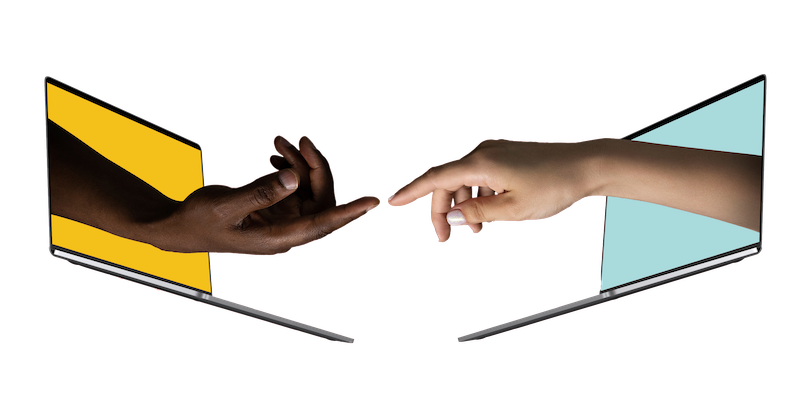The cost of healthcare is continually rising. In fact, U.S. healthcare spending is estimated to hit $6.2 trillion by 2028. Want to know a secret? It doesn’t have to be this way. You’re probably overspending on healthcare and Start has the solution.
What’s to Blame for High Costs?
There is not one single factor making healthcare more expensive. Culprits include (but are not limited to) inflation, technology, administrative expenses, and pharmaceutical costs.
The U.S. Bureau of Labor Statistics announced that the consumer price index has increased by 8.5% in the last year. Here’s a scary fact: inflation averaged about 3.7% annually between 1960 and 2020, meaning inflation is more than double what we are accustomed to right now. If you think that’s bad, here is another scary fact: healthcare inflation is generally between 2 and 2.5 times as much as overall U.S. inflation.
On top of inflation, healthcare facilities are quick to adopt new, expensive technology that may be unnecessary. Administrative costs make up an estimated 21% of excess U.S. spending on healthcare. Healthcare facilities that advertise frequently tend to charge more but are not higher quality than facilities that don’t advertise. Don’t ignore facilities you don’t see in the media—they are often hidden gems.
Rising pharmaceutical costs are one of the most significant contributors to the overall rise of healthcare expenses. If a pharmaceutical company is the only one that offers a drug, they can charge consumers as much as they want—and they do. For instance, a 2018 study estimated that one vial of insulin costs between $3-$4 to produce, and yet one vial of insulin can cost up to $250.
Start Saving
The realization that you’re spending money on more than just treatment when you visit a healthcare provider is frustrating. Healthcare is a human right, and you should not be overcharged. Through cost awareness (a.k.a. price transparency), self-pay (paying upfront for medical costs), providing quick reimbursements, and eliminating networks, Start can significantly lower your healthcare costs.
Price Transparency
Healthcare facilities don’t always publish their prices, opting instead to send you surprise bills down the road. It’s unfair that healthcare isn’t treated like the rest of the market—you should be able to know the cost of care before you go, just like you can see the prices on anything else before you buy.
Start’s search tool allows you to search by procedure and view healthcare providers in your area. You can then compare the costs of various local healthcare providers before deciding where to receive care. Since you’ll know the Start Benefit Amount (fixed reimbursement amount) in advance, you essentially get to choose how much you save on a procedure.
Self-Pay
When you self-pay (link to “Cash is King” Article) (pay in advance or on the day of service) medical providers are very likely to offer you a discount—they’re happy to avoid “chasing the check.”
Quick Reimbursement
How exactly do you go about self-paying? Once you receive care, you’ll pay for the service with your Start Benefit Card, and then upload your itemized receipt into the Start App within 30 days of your medical service. Once your receipt is uploaded to the app, you’ll be credited the Start Benefit Amount associated with your procedure. 100% of the Start Benefit Amount will be applied to your deductible until it is met. Once your deductible is reached, the Start Benefit Amount will be credited to you in full. And just like that, you’re done. No lengthy claims process, and no surprise bills down the road.
Network-Free Care
One of Start’s most exciting benefits is the fact that it has no networks. With so many factors playing into a facility’s costs, we want our members to have access to any provider they choose. Start lets you take control of finding your own providers, and network freedom allows you to find the best local providers at the best price.
HSAs: The Cherry on Top
Start is the only HSA-qualified reimbursement model. HSAs (health savings accounts) are key to lowering healthcare costs due to their triple-tax advantage: tax-free contributions, growth, and withdrawals for qualified medical expenses. HSA funds can be used toward deductibles and can even be invested—a prime way to take advantage of their tax-free growth and build wealth that can ultimately supplement retirement.
Seriously, Why Hasn’t Healthcare Always Been Like This?
Healthcare should be as simple as getting reimbursed for care you receive, rather than forking out money towards overpriced facilities and high premiums, and then getting pounced on by down-the-road surprise bills. With Start, healthcare is simple. The best way to maximize your health savings is to take complete ownership of your health plan. Many Americans underestimate their ability to navigate the world of insurance and feel most comfortable allowing traditional insurance companies to take the lead. The truth is that insurance is easier than you think. Start offers StartU, a free learning program that teaches you the ins and outs of the health insurance industry as well as everything you need to know about your Start plan. Don’t be fooled by technical insurance jargon—you have the power to control your health plan and lower your costs, and only YOU have your best interests in mind. Start treating healthcare the way it should be treated: just like the rest of the market.
Sources:
“Drivers of Healthcare Costs”
Missouri Medicine
